Real Education vs. Social Media Trends in the Beauty Industry: Why Professional Training Matters April 4, 2024

In the rapidly evolving world of beauty, social media has become a powerful influencer, shaping trends and setting standards. Platforms like Instagram, TikTok, and YouTube are filled with tutorials, product reviews, and transformation videos that can make the beauty industry seem accessible and glamorous. While social media trends offer a glimpse into the latest looks and techniques, they can’t replace the depth and value of a formal education in beauty. Here’s a closer look at the differences between real education in the beauty industry and following social media trends, and why professional training is essential for a successful career.
**1. Depth of Knowledge
Social Media Trends
Social media is often focused on showcasing specific looks, quick tips, and viral challenges. While these can be inspiring and offer immediate results, they usually lack depth. Tutorials may highlight trendy techniques or popular products but often skim over the underlying principles and techniques that form the foundation of professional beauty practices.
Real Education
A formal beauty education provides a comprehensive understanding of fundamental principles. Students learn about skin anatomy, color theory, sanitation practices, and the science behind products and techniques. This in-depth knowledge is crucial for mastering the craft and ensuring that beauty practices are both effective and safe.
**2. Technical Skill Development
Social Media Trends
Social media can be a great source of inspiration for current trends, but it often presents an idealized or simplified version of techniques. Followers may see a polished final look without understanding the detailed steps or the technical skills involved. Many viral trends lack the nuanced instruction needed to master complex techniques.
Real Education
Professional training focuses on building technical skills through hands-on practice and expert guidance. Students are trained in various techniques, from basic to advanced, and receive constructive feedback that helps them refine their skills. This thorough training prepares them for a wide range of scenarios and ensures they can adapt their techniques to different clients and situations.
**3. Safety and Hygiene Standards
Social Media Trends
While social media influencers often showcase beauty routines and techniques, they may not always emphasize the importance of hygiene and safety. Followers might not be aware of the proper sanitation practices required to prevent infections or allergic reactions.
Real Education
Beauty schools and professional training programs emphasize the importance of safety and hygiene. Students learn about proper sanitation techniques, how to maintain a clean workspace, and how to use products safely. Understanding and adhering to these standards is crucial for protecting both clients and practitioners and ensuring a professional and ethical practice.
**4. Personalized Client Care
Social Media Trends
Social media often focuses on universal trends and one-size-fits-all solutions. While this can be helpful for general inspiration, it doesn’t address the individual needs of clients. Trends showcased online may not suit everyone’s unique skin type, hair texture, or personal style.
Real Education
In a professional beauty program, students are trained to assess and understand individual client needs. They learn how to customize treatments and recommendations based on personal characteristics and preferences. This personalized approach ensures that clients receive tailored services that best meet their specific needs.
**5. Professionalism and Ethics
Social Media Trends
Social media can sometimes prioritize aesthetics and trends over professionalism and ethics. Influencers might promote products or techniques without fully disclosing potential risks or conflicts of interest. This focus on image can sometimes overshadow the importance of ethical practice.
Real Education
A formal beauty education emphasizes professionalism and ethical practices. Students learn about industry standards, client confidentiality, and ethical behavior. This focus on ethics ensures that beauty professionals conduct their business with integrity and uphold the highest standards of practice.
**6. Career Advancement and Credibility
Social Media Trends
While social media can provide visibility and help build a following, it doesn’t always translate into professional credibility. Followers may appreciate the latest trends but might not recognize the value of formal training and qualifications.
Real Education
A professional education provides credentials and certification that are recognized and respected within the industry. This formal training enhances credibility and opens doors to various career opportunities, from working in high-end salons to starting a successful beauty business.
**7. Continued Learning and Adaptation
Social Media Trends
Social media trends change rapidly, and what’s popular today might be outdated tomorrow. Following trends can lead to a constant chase after the latest fads, often without a solid understanding of their relevance or application.
Real Education
Professional beauty training encourages continued learning and adaptation. Students and professionals are taught how to stay updated with industry changes through ongoing education and training. This proactive approach ensures that they are equipped to adapt to new techniques and innovations while maintaining a strong foundation in their core skills.
Conclusion
While social media trends offer valuable inspiration and a glimpse into the latest beauty innovations, they cannot replace the depth, expertise, and professionalism gained through formal education. Real beauty education provides the technical skills, knowledge, and ethical grounding necessary for a successful career. By combining the inspiration from social media with the solid foundation of professional training, beauty practitioners can elevate their practice and offer exceptional services that are both creative and technically sound.
Creativity Unleashed
Follow us to see what Drives our Motivation

Campus
343 Neff Ave
Harrisonburg, VA 22801
Hours
Monday | 9:00am – 4:o0 pm
Tues. – Thur.| 9:00am – 9:o0 pm
Friday | 9:00am – 4:o0 pm
Saturday | CLOSED
Sunday | CLOSED
Quick links
Disclosures & Important Links | Website Accessibility Policy
The Salon Professional Academy (TSPA) in Harrisonburg, VA
Privacy Policy
© 2025. All Rights Reserved. The Salon Professional Academy is a Redken Business Resource.
Quick links
See what creativity looks like, unleashed!
Harrisonburg, VA 22801